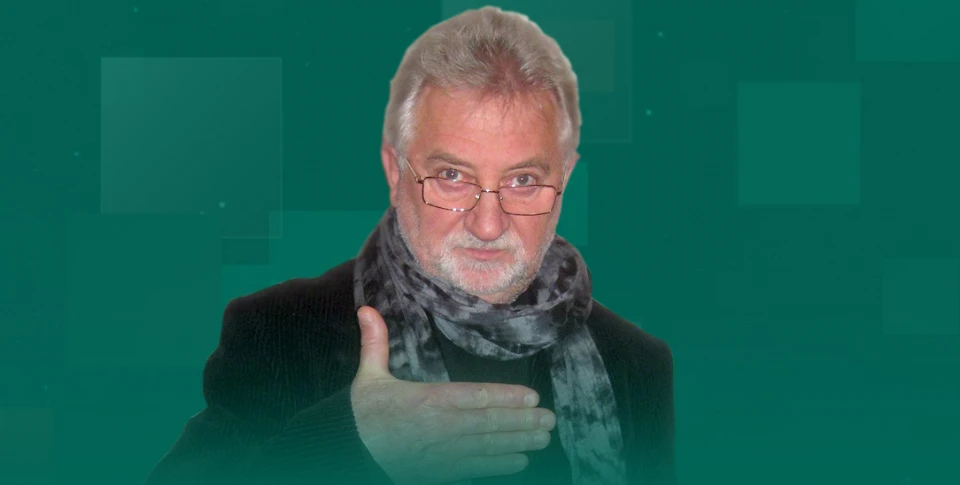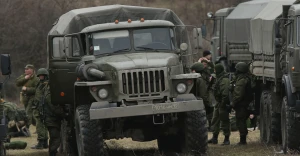
Government changes: A display of power by powerless authorities
Why is Ukraine's government traditionally weak and corrupt, given that we have both effective professionals and reputable intellectuals?
It has long been known that the professional level of the Ukrainian government, which is largely composed of random people, is low. This includes the heads of the President’s Office, who are also "effective managers" whose effectiveness is only known to the president—or whom he tries to convince himself is effective. For some reason, he continues to trust these managers, and they have been in place for nearly five years.
When the large-scale war with Russia broke out, many optimists hoped that it could and should have been an occasion to create a government of people's trust, formed on a coalition basis and including representatives of the opposition.
But it did not happen as expected. President Zelenskyy, as the leader of a political movement that won the parliamentary elections and single-handedly formed the government, ignored the usual international practice of forming a coalition government of public trust in critical circumstances for the country. And it took him two and a half years of bloody war to come to the conclusion that it was necessary to change, if not the entire executive body, then at least a large part of it.
At the height of the war, the current political authorities began making major personnel changes. Some ministers, who had pretended to study and become effective managers while working hard, were replaced by others from the same political force. This force was once assembled under force majeure in various intriguing circumstances and called to government work in the legislature(?).
And what will these personnel changes bring? Nothing, because the history of their predecessors suggests that shuffling cards from the same deck does not improve the quality of governance, because they will only spend a few months learning how to pronounce their ministry and position correctly. Additionally, as often happens with the Servants of the People party, the worst performers are not dismissed, and the best candidates are not appointed. This pattern is not unique to this party but reflects a broader Ukrainian state tradition dating back to independence.
To be fair, they were not the ones who shaped the country’s state and political structure or built its political institutions. For many years before them, the National Democrats were in power and had every opportunity to correct the state administrative system and make it, if not effective, at least operational. But they did not. Why?
This is a good question with many answers. From "We will still have time to improve the Constitution, optimize the structure of the state apparatus, now we need to solve urgent issues." To "In order to 'sew' the country together ideologically, politically, regionally, we need to share power.”
And this practice of "sharing power" led to the fact that one minister appointed by the parliament had ten deputies delegated by political parties whose representatives were in the legislature and voted in a consolidated manner with the winners of the elections. And for this, representatives of the majority paid with seats in the leadership of the parliament, government, state institutions and enterprises.
An eloquent example comes from the Ministry of Defense. Here, it turns out, there are as many as 5 (!) deputy ministers delegated by various party and business groups that are in charge of European integration. More precisely, with funds and military equipment coming from the EU and the U.S. And what is the result? Corruption worth billions of hryvnias is uncovered there almost every week.
So the picture is so colorful that it is very easy to get confused. Often, a deputy minister works not to implement the minister's program, which was approved by the parliament, but to implement the program of his or her party's leadership. More precisely, to replenish the treasury of their party structure and its individual members.
The new ministers know very well that they should not worry about management decisions, because they will not make them, but the President’s Office will. So, let it be responsible for them.
And there is no need to worry about the implementation of these decisions either, because this will be done by their deputies, who were not selected and appointed by the minister, but by the President’s Office, which, in turn, will hide behind the wording of a collegial body - "the decision of the Cabinet of Ministers." And everything will turn out fine: a decision seems to have been made, but who made it and who implemented it is unknown. And there will be no one to answer the question about responsibility for this mess. And there will be no one to ask.
All of this is called "collective responsibility" (the term itself and its modified meaning are still left over from Soviet times), which should be more accurately called collective irresponsibility. And it is not their fault that things are not being done. They did not invent this scheme, and they are not the ones to break it.
But it's still interesting: why do teams leave the President’s Office? Why, after all, is the president in charge of everything? We have a parliamentary-presidential republic, right?
It turns out that this is only a name, and in reality, whether in a coalition parliament, as it was under Petro Poroshenko's presidency, or under Volodymyr Zelenskyy's mono-majority, everything is decided by the president and his assistants. And everything depends on them. And not only the appointment of leaders and policy-making in the military, the Ministry of Foreign Affairs, or in the judiciary and anti-corruption bodies, as the Constitution prescribes. It is practically everywhere in government agencies, where salaries have recently been raised to sky-high levels, and where the President appoints and dismisses them.
It turns out that we actually have a presidential republic, where everything is centered on the head of state. And he reports on his work, by and large, only once every 5 years, when he seeks re-election, considering his contribution to be super successful for some reason.
This collective irresponsibility of the main branches of the Ukrainian government causes the ineffective work of the entire state apparatus, which is also undermined by the people's deep-rooted distrust of the authorities and the law.
In our land, this distrust lasted for the last centuries under the rule of the Russian Empire. This distrust continues to this day, fueled by the total ignorance and theft of the 1990s. Therefore, as soon as a person who came to power with the best of intentions (from the smallest to the largest) sees that this power is infected with the bacillus of corruption and everyone who can, seeks to get into the state pocket, the hand involuntarily reaches for that pocket. And only a few can resist the temptation.
Yes, Ukraine has left the Russian Empire behind, but the legacy of that empire still lingers among Ukrainians. It seems to be a vicious cycle, perpetuated by those who benefit from maintaining the status quo. For over 30 years, this cycle has persisted, with little progress beyond its confines.
How to get out of it and is it possible?
An exhaustive and accurate answer to this question can be given by independent constitutional lawyers, of whom we already have a fair number. But there is no doubt that the first constitutional law expert who comes across an analysis of the Ukrainian state structure will point out that the principle of balance of all branches of power has been violated. With a complete lack of counterbalance. That is, not only two- or three-powerlessness, but also complete irresponsibility of the state leaders.
Is it possible to avoid the effect of collective irresponsibility? It is certainly possible. Based on the European experience and the logic of the development of domestic power contradictions, it is worth limiting the constitutional duties of the president to representative functions and the military sphere. And that's it. And the prime minister and sectoral ministers should be made the chief state official, who should have the right to form their own team and be personally responsible for the work they are assigned. And who can be held accountable for the state of affairs without waiting for the end of the term of the parliament that appointed them.
And we are not opening up America with this. We are not even reinventing the wheel. This is a centuries-old European practice of a democratic state. So what or who is stopping us from using it?
About the author. Viktor Moroz, Ukrainian publicist, columnist.
The editors don't always share the opinions expressed by the blog authors.
- News













































